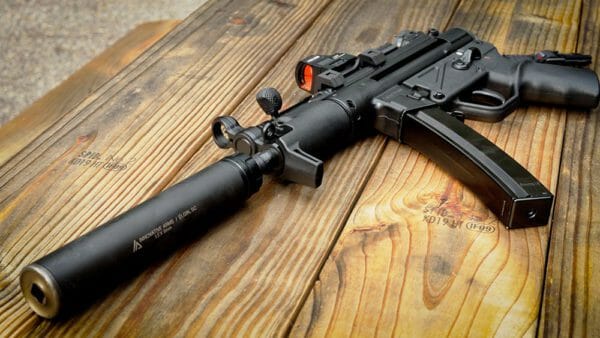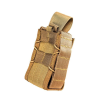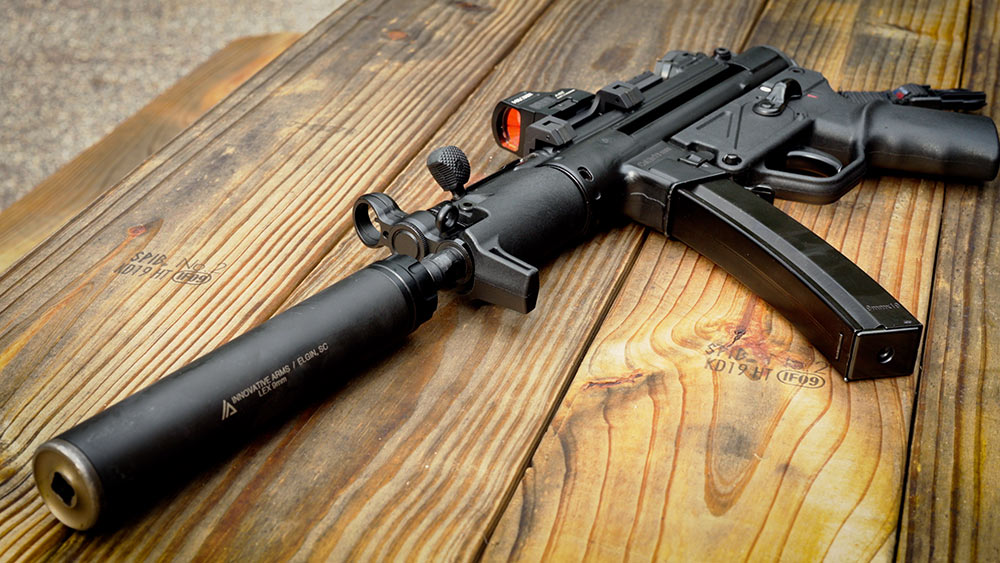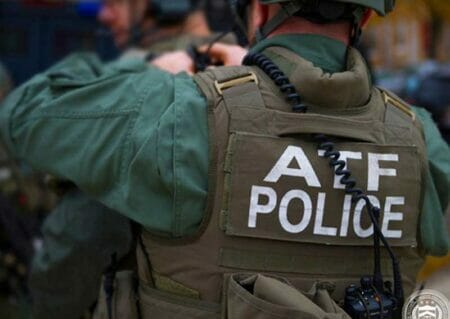
On September 7, 2023, Brennan Comeaux was arrested for possessing unregistered silencers without serial numbers. He was appointed a federal defender in Louisiana in the United States District Court for the Western District of Louisiana. Louisiana is in the Fifth Circuit Court of Appeals.
On December 20, 2023, a motion to dismiss was filed by Comeaux’s attorney. From the Motion to Dismiss:
By indictment, the government accuses Brennan Comeaux of possessing unregistered firearms in violation of 26 U.S.C. § 5861(d) (Count One) and receiving and possessing firearms unidentified by serial number in violation of 26 U.S.C. § 5861(i). ECF 1. Specifically, the government alleges that Mr. Comeaux built his own firearm suppressors, five in total, and did not register them or identify them by serial number as required by federal law. Mr. Comeaux is not a prohibited person prevented from possessing firearms under federal or state law.
Mr. Comeaux alleges that these statutes violate the Second Amendment on their face and as applied to him as that right has been interpreted by the United States Supreme Court in New York State Rifle & Pistol Association, Inc. v. Bruen, 142 S. Ct. 2111 (June 23, 2022).
The argument put forward is simple: the requirement to register arms and the requirement for arms to have serial numbers is a latecomer to American jurisprudence, only occurring after 1911, far too late to be considered as a longstanding and accepted law within the right to keep and bear arms.
The Biden administration countered with three arguments.
- Silencers are accessories, not “arms,” protected by the Second Amendment.
- There is a history of regulating “dangerous and unusual” weapons. Silencers are “dangerously unusual.”
- There is a historical tradition of regulation of commerce in firearms. Therefore, silencers can be regulated with serial numbers and registration.
From the government brief:
In short, under Heller, even assuming that silencers are “arms,” within the meaning of the Second Amendment, they remain unusually dangerous and thus fall permissibly within this nation’s historical tradition of regulation.
On January 10, 2024, US District Judge David C. Joseph filed a memorandum that found for the Biden administration:
The government urges the Court to deny the Motion for two reasons. First, it argues that firearm silencers are not an “arms” within the meaning of the Second Amendment and therefore are not protected by it. [Doc. 27]. Second, the government argues that even if protected by the Second Amendment, the regulation of firearm silencers is “well in line with two historical traditions in this country: first, the historical tradition of regulating dangerous and unusual weapons and, second, the historical tradition of regulating commerce in firearms.” Id. at p. 4. Determining that firearm silencers qualify as “dangerous and unusual weapons” based on their historical use and function, the Court need not address the government’s other arguments.
Judge Joseph ignores Bruen when making his decision. He cites no evidence of a historical requirement for serial numbers or firearms registration before 1911. This is far too late to be applicable under Bruen. He cites various governmental entities and individuals as claiming machine guns, short-barreled shotguns, and silencers as being “not typically used for lawful purposes,” claiming the lack of serial numbers and registration is what makes them not typical. He ignores the lack of any historical statute requiring registration and serial numbers.
All weapons are “dangerous”. The government purposely seeks to confuse the issue by using three separate phrases interchangeably: “dangerous and unusual” (as used in Heller); “dangerous or unusual,” not used in the Supreme Court decisions; and “dangerously unusual,” not used in any Supreme Court decisions.
Neither the Biden administration nor the Judge attempted to explain a standard for what is in common use. The judge hides behind the requirement for registration and serialization without finding any historical evidence in the law to show these practices were commonly accepted at any time before 1911, long after the Second Amendment was ratified. The Fourteenth Amendment does not apply because this is a federal law, not a state law. To claim that there are over three million silencers in lawful use does not count because the federal government requires registration and serial numbers begs the question.
Stun guns, with perhaps a couple of hundred thousand in use in the United States, were found to be “in common use” in the Supreme Court decision in Caetano. This correspondent did not see the Caetano decision cited in this case.
If weapons can be regulated because the government says they are “dangerous and unusual,” there is no stopping point to prevent the government from regulating them out of existence.
Grounds for an appeal exist. What type of plea deal may be offered to Mr. Comeaux is unknown.
Read Related: Supreme Court Confirms 2A Applies to all Bearable Arms!
Live Inventory Price Checker

|
Bolt 2 Ranged & Direct Contact Stun Gun W/Led And Laser - Bolt 2 Ranged & Direct Contact Stun Gun W/Led & Laser White | Brownells.com | $ 449.99 |
|
|
|
Zap Gun Stun Gun Flashlight Yellow Plastic | Ammunition Depot | $ 34.99 |
|
|
|
PS Products Zap Hike n Strike 0.95 MV Stun Gun, Orange/Black - ZAPHS | Palmetto State Armory | $ 95.99 |
|

|
High Speed Gear TACO OneWrap Belt Mounted Stun Gun Pouch | Bereli | $ 20.00 |
|
About Dean Weingarten:
Dean Weingarten has been a peace officer, a military officer, was on the University of Wisconsin Pistol Team for four years, and was first certified to teach firearms safety in 1973. He taught the Arizona concealed carry course for fifteen years until the goal of Constitutional Carry was attained. He has degrees in meteorology and mining engineering, and retired from the Department of Defense after a 30 year career in Army Research, Development, Testing, and Evaluation.







An easy test to identify a Communist is how they judge the Second Amendment.
Somebody calling a suppressor dangerous is somebody who’s been propagandized by Hollywood.
And…how does argument #3 “There is a historical tradition of regulation of commerce in firearms.” apply if he is accused of making his his own can? It sounds like this judge was predisposed to side with the government and a public defender cannot be counted on to be well versed in 2A law nor to put up a rigorous defense.
If they are not arms, then does the ATFE have jurisdiction over their regulation?
Suppressors are neither dangerous or unusual. The ATF themselves consider suppressors as firearms. It can’t be both ways.
Government thugs conspiring to violate rights? Shocking!
From the Article: The Biden administration countered with three arguments. Silencers are accessories, not “arms,” protected by the Second Amendment.Hey JackASS, how about sound suppressors or mufflers protect the shooter and other peoples hearing and that is a health issue. Obiden, you are so dam pushy on protecting Americans health by calling the AR 15’s and standard capacity magazines and mass shootings a health issue. How about acknowledging a real health issue which is our hearing and stopping this infringement to protect my ears from hearing BS from assholes like you!!!!! F you JB Try driving a car which has… Read more »
“Dangerously unusual”? Seriously? They are friggin’ illiterate, yet they are allowed to decide our legal questions?
If a suppressor is an “arm,” make it go bang. If it doesn’t go bang, it isn’t an arm. If it isn’t an arm, the ATF has no jurisdiction over it. If it protects hearing (my contention) then it is a medical device. If it’s a medical device, no tax stamp should apply and you should be able to get the suppressors you require through your health insurance policy.
Now doesn’t that make more sense?
in one sentence silencers are weapons but in another sentence they are accessories. which is it? they can’t be both